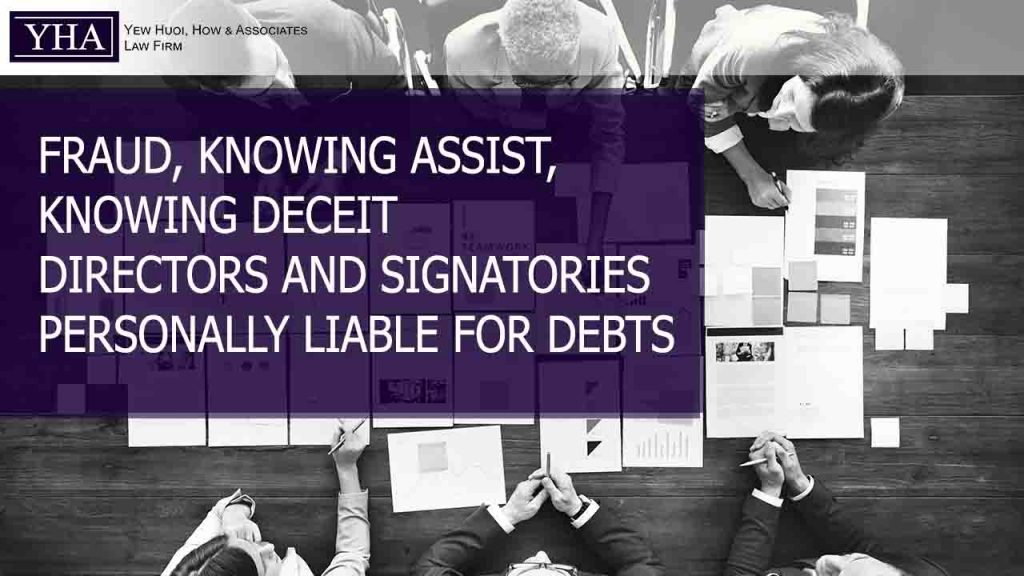Q: I own a timber supply company. We were engaged by a manufacturing company (“Company A”) to supply timber since 2011. Starting 2 years ago, Company A had got behind payments of our bills. Thus, we have brought the matter to court. The court ordered Company A to pay us the amount due. One month after the decision of the court in November 2020, Company A went into liquidation. I came to know that Company A did receive payments amounting to millions in October 2020. The company however transferred millions out and allow Company A to be wound up. What can I do?
A: You may file an application to the court to hold the directors or signatories of the bank account personally responsible for knowingly transferring the monies to defraud its creditors under Section 540 of the Companies Act 2016 (“CA 2016”).
Q: What happened if the directors or signatories of the bank account claimed they have no knowledge where the monies go?
A: Although the burden of proving fraudulent intent in s.540 CA 2016 is on the Plaintiff i.e. you and your company, however, you may ask the court to draw adverse inference against the directors and signatories of the bank account of the company. The directors and signatories of the bank account of the company must explain how the monies received before winding up are dealt with. Failure to do so would attract adverse inference to be drawn against them.
Q: What happened if the directors claimed he was under the instruction of other directors to transfer out the monies and has no knowledge to any fraud.
A: Anyone who knowingly be a party to fraud is liable to the fraud. It is sufficient if he turned a “blind-eye” i.e. deliberately shutting his eyes to the obvious and remains liable for fraud.
Q: Can my company and I applied for the directors to personally pay my company the debt due instead of the liquidator as there are other creditors who had filed proof of debt when Company A was wound up?

A: Section 540 of the CA 2016 is wide enough to allow the court to order payment directly to the applicant/creditors who file in the application under s.540 of the CA 2016 OR the liquidator of the company. However, the court is likely to order payment to the liquidator so that the monies can be shared in pari passu with the other general unsecured creditors.
Case in point : Tetuan Sulaiman & Taye v Wong Poh Kun & Anor. KL High Court no. WA-22NCC-364-08/2018

